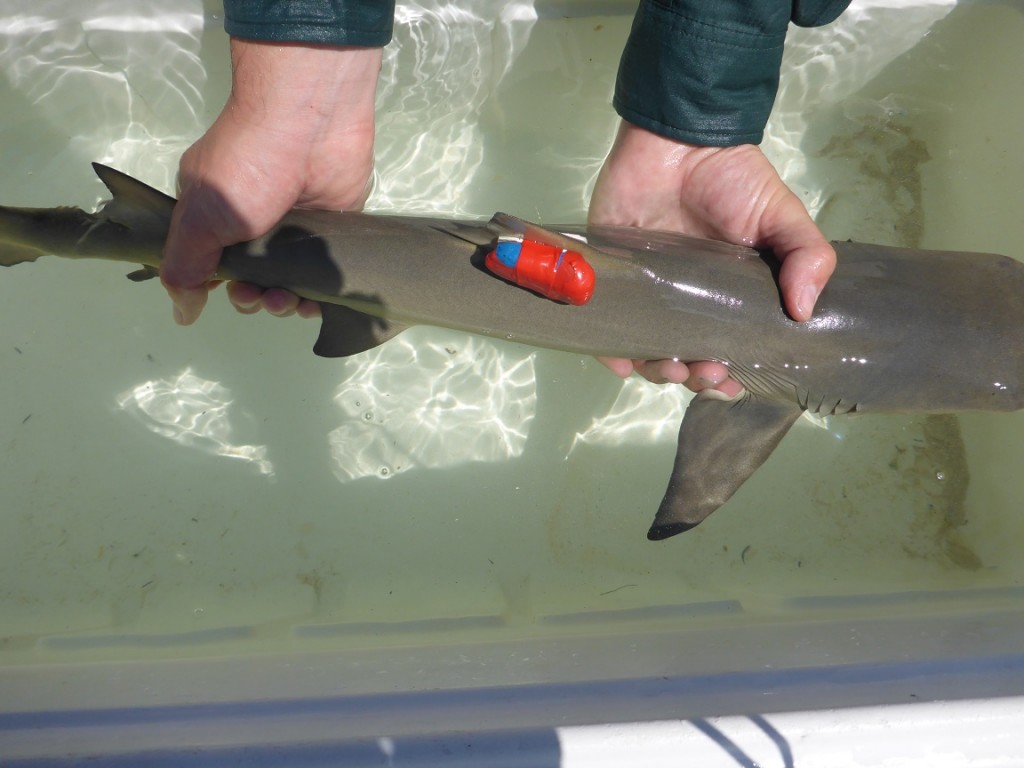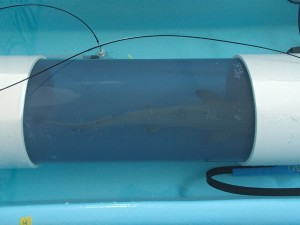Longline fishing is the predominant capture method of sharks in both targeted fisheries and fisheries that incidentally catch sharks. There is a growing body of research determining the immediate physiological responses of sharks to this prolific capture method, but researchers are just beginning to skim the surface on understanding the long-term responses to capture that may influence vital life-history processes such as growth and reproduction. The extent to which sharks allocate energy to recovery from capture away from processes like locomotion, growth, and reproduction is completely unknown and a compelling question toward shark conservation research.


Researchers at the Cape Eleuthera Institute (CEI) have recently begun conducting research to determine how much energy (i.e., calories) sharks consume when caught by longline gear relative to the energy consumed during routine, daily activity. This project combines biotelemetry (tracking behavior and activity in wild animals) and respirometry (a method of estimating energy consumption by measuring rates of oxygen consumption) approaches to estimate energy consumption in wild sharks. Specifically, acceleration data-logging tags will be used to characterize routine and exhaustive activity in wild sharks, and respirometry techniques will be employed to quantify the energetic costs of those activities. These data have the potential for conservation and fisheries management application by linking behaviors exhibited during the capture response with adverse physiological outcomes.
University of Illinois M.Sc. student, Ian Bouyoucos – a previous CEI intern – will be heading the field and lab work on site in The Bahamas. This research is being conducted in collaboration with Dr. Edd Brooks of the Shark Research and Conservation Program at CEI, and longtime shark program collaborators, Dr. John Mandelman of the New England Aquarium, and Dr. Cory Suski of the University of Illinois.